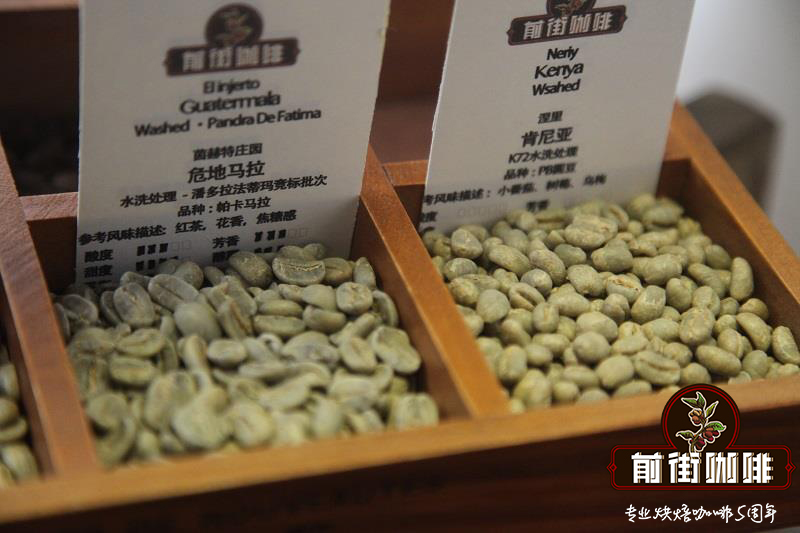What is white coffee? Is white coffee higher in caffeine? How does white coffee taste?

This is not just a crazy new trend. In fact, white coffee can have some interesting effects-but really? If you are curious about the explanation of this new baking and want to try it yourself, you have come to the right place. We will first summarize the special features of white coffee, and then share some of our preferences.
What makes white coffee white?
This is a very reasonable question because-as we all know-coffee beans start their own lives, small mung beans, and then turn brown during baking. So, where does white come from?
It turns out that there is always white. In a typical baking cycle, mung beans begin to become lighter and then quickly turn brown. As the baking goes on, the beans become darker and darker-so these terms are called "light baking" and "dark baking".
However, if you bake these beans at much lower temperatures (usually 100 degrees Fahrenheit below normal), you can keep them pleasantly white.
It's not just color. Some of the main benefits of roasting coffee at lower temperatures are related to caffeine content and flavor.
Does white coffee contain more caffeine?
Believe it or not, white coffee does contain more caffeine. This is because the amount of caffeine in coffee beans actually decreases as the roasting process becomes more intense. As a result, deeper baking is less effective than shallow baking to cheer you up in the morning.
However, the increase in caffeine in white coffee may not have much effect on you. Although the caffeine content on the market is usually 50% higher than traditional roasted caffeine, white coffee actually contains only about 5% more caffeine than we are used to.
This small difference is negligible, so don't expect white coffee to be some kind of super energy drink. Don't drink caffeine, but definitely drink it, because it has a pleasant flavor.
How does the white coffee taste?
Since all the flavor compounds in coffee are brought out at different stages of the roasting process, the range of roasting levels can be expected to vary. In general, lighter baking tastes brighter than chocolate and provides more fruit.
The same pattern applies to white coffee, which in some ways is only a very light roast. For this reason, white coffee is quite bright and acidic. You may find it difficult to find bitterness, or any other flavor common in dark toast (for example, raisins and malt).
In addition to these expected flavors, white coffee also has an amazing nutty flavor. This is one of the most exciting tasting features of this particular baking. Look for some almonds and walnut flavors.
Important Notice :
前街咖啡 FrontStreet Coffee has moved to new addredd:
FrontStreet Coffee Address: 315,Donghua East Road,GuangZhou
Tel:020 38364473
- Prev

Introduction to the world-famous geisha coffee Gesha Green Rose Summer Flavor in the Emerald Manor of Panama
Country: Panama Panama production area: Poquet Boquete producer: jadeite Manor Hacienda La Esmeralda altitude: 1600-1800 m varieties: geisha Geisha / Geisha treatment: washing / Full Washed baking degree: shallow baking Peterson family, is also the main management team of Jadeite Manor. On the right is the big parent Price, Jade Manor.
- Next

Finca Miravalle Farm in El Salvador, does bourbon coffee concentrate taste good?
Area: Avachapan Apaneca treatment: washing and drying: sun-dried terrace varieties: bourbon Grade: SHG Finca Miravalle is owned by Luis Duarte, located in Apaneca in Ahuachapan, not far from Santa Ana volcano. Miravalle is about 1500 meters above sea level and is grown only in Pacamara. It's part of a larger coffee plot.
Related
- Detailed explanation of Jadeite planting Land in Panamanian Jadeite Manor introduction to the grading system of Jadeite competitive bidding, Red bid, Green bid and Rose Summer
- Story of Coffee planting in Brenka region of Costa Rica Stonehenge Manor anaerobic heavy honey treatment of flavor mouth
- What's on the barrel of Blue Mountain Coffee beans?
- Can American coffee also pull flowers? How to use hot American style to pull out a good-looking pattern?
- Can you make a cold extract with coffee beans? What is the right proportion for cold-extracted coffee formula?
- Indonesian PWN Gold Mandrine Coffee Origin Features Flavor How to Chong? Mandolin coffee is American.
- A brief introduction to the flavor characteristics of Brazilian yellow bourbon coffee beans
- What is the effect of different water quality on the flavor of cold-extracted coffee? What kind of water is best for brewing coffee?
- Why do you think of Rose Summer whenever you mention Panamanian coffee?
- Introduction to the characteristics of authentic blue mountain coffee bean producing areas? What is the CIB Coffee Authority in Jamaica?

